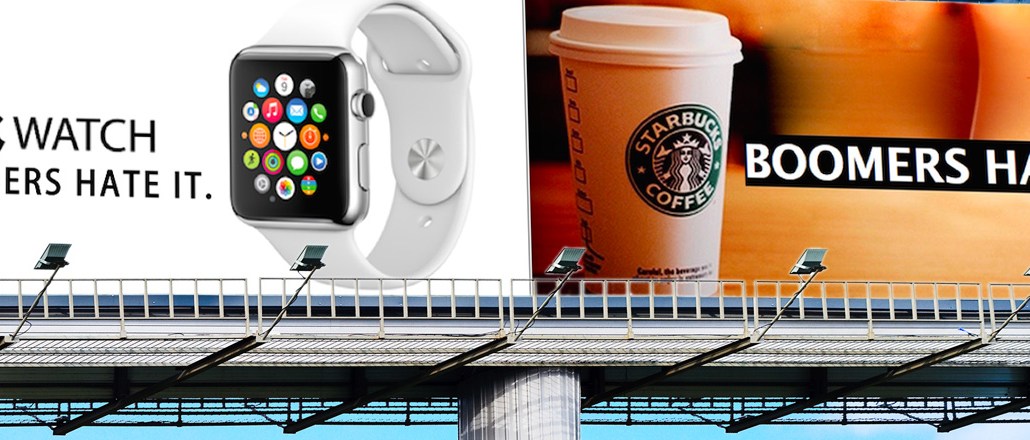Last chance to save on Digiday Publishing Summit passes is February 9

Mark Duffy has written the Copyranter blog for 10 years and is a freelancing copywriter with 20-plus years of experience. His hockey wrist shot is better than yours. Follow him on Twitter.
Hello frustrated brands! Having trouble resonating with those elusive, flitty 18- to 34-year-olds? Today’s your lucky day: Being an expert on both millennials and advertising puts me in the unique position of being able to tell you exactly how to reach, engage and interact with those wacky millennials.
I worked for 18 months in the most millennial place on earth— the BuzzFeed newsroom, a hive-mind of millennialism. There, a hundred-plus millennial thought-leaders spend all day thinking and talking and wondering about what millennials do, want, need, like, hate, watch, eat, drink, share, etc.
Since then, I’ve been sitting back and watching and shaking my head at all of you clueless brand managers as you flail and fail in your efforts to woo Gen Y. Your main mistake: you need to stop trying to “persuade” them to buy your product. They have no patience with you — or anyone else — telling them what to do. They are savvy digital natives, and you are not.
Here are four unconventional advertising schemes that will work on millennials.
Boomers hate us.
Just slap that copy line on every piece of ad communication you produce. Millennials, more than anything else in the word — except maybe slow Wi-Fi — hate Baby Boomers. “Boomers destroyed our economy.” “Boomers destroyed our planet.” “Boomers are always asking us to fix their computers.” “Boomers don’t like our beards.”

It matters not whether Boomers do in fact hate your product. I’m sure your marketing gurus can make up some statistics to support the campaign. And! You’ll probably even see an increase in midlife-crisis-suffering Boomer customers out to show you that they’re “rebels.”
Give your product away, for free.
Millennials want and expect to get things for free. They, somewhat rightly, feel that they are owed lots of stuff because of the shit world and economy the older generations handed to them.
If you give one of your products away to any millennial who wants one, they will then rush to their social media accounts and gush about what a great brand you are, and BAM — you’ve got millions of brand ambassadors promoting your product, for free. This idea will work for Tic Tacs, BMWs and every product in between.

Be boringly humbly honest.
Ever see the movie “Crazy People,” where ad man Dudley Moore has a mental breakdown and starts creating painfully true product ads (“Volvo—they’re boxy but they’re good.”)?
You’ve probably seen some of the plethora of honest brand slogan posts in recent years. This is an approach you can try; just don’t do it as a joke. Don’t try to be clever or funny or dramatic or interesting. Millennials see right through that bullshit. Here’s an example:

See? You kind of want a pair now, dontcha? Tell Adidas to shove their double-talking “Impossible Is Nothing.”
Attach your product to an important social issue, even if it has nothing to do with your product.
Selling dog food? Take on racism. Selling soap? Take on the empowerment of women. I don’t know… selling chainsaws? Take on stopping domestic violence, who cares if it makes no sense; millennials eat up cause marketing.

There you have it, brand people, but you better make it snappy. The age of the centennials is almost here, and who knows what the hell will work on them.
More in Marketing

In Q1, marketers pivot to spending backed by AI and measurement
Q1 budget shifts reflect marketers’ growing focus on data, AI, measurement and where branding actually pays off.

GLP-1 draws pharma advertisers to double down on the Super Bowl
Could this be the last year Novo Nordisk, Boehringer Ingelheim, Hims & Hers, Novartis, Ro, and Lilly all run spots during the Big Game?

How food and beverage giants like Ritz and Diageo are showing up for the Super Bowl this year
Food and beverage executives say a Super Bowl campaign sets the tone for the year.





